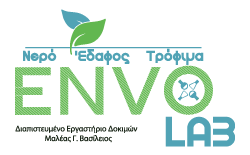Precision Agriculture is a production system of agricultural products that is based on the management of inputs in a field according to the actual needs of the crop both spatially and temporally. Precision farming systems rely on the opportunities provided by new technologies to identify the spatio-temporal variability of crop needs and the development of variable input systems.
Unlike conventional farming methods, where inputs are provided uniformly in the field, assuming that there is acceptable homogeneity in soil properties and soil fertility, soil moisture, weed and insect populations, and plant characteristics, precision agriculture manages the field in smaller areas (management zones) that exhibit a relative uniformity that is more responsive to reality.

Precision Agriculture
Precision Agriculture Studies
These technologies include:
- Data logging systems and mechanisms, such as performance charts, LABORATORY ANALYSIS, Remote Sensing, Positioning Systems and Sensors.
- Results management and performance systems such as Geographic Information Systems – GIS and Experienced systems.
- Variable application systems (flow or type), such as fertilizers, seeders, sprinklers, etc.
In this context, the high reliability of field property data and the provision of real-time information are of particular importance and importance.
The ENVOLAB Lab aligns its strategy and aims to serve integrated management and precision farming, as well as rational agricultural practice, integrating into the system on the one hand by providing the high reliability laboratory results necessary for the above methods and methods. and integrating the information technologies of farmers and agronomists required by the precision farming method.



